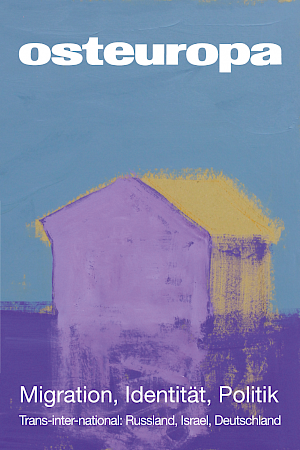Between all worlds
On the impact of migration on children of Russian-speaking Jews in Germany and Israel
Deutsche Fassung
Abstract
Children and young adults experience migration differently to their parents. They have not made a vital life decision themselves, but are more capable of adapting to a new environment and a new language. Much depends on the conditions in their new place of abode. In Israel, the children of Russian-speaking Jews were confronted with the fact that their parents frequently experienced a downturn with regard to their careers and social status. This had a negative impact on their school progress, and many of them are less well-qualified than their parents. In Germany, however, where the group of Russian-speaking Jews is much smaller, in both absolute and relative terms, in most cases, continuous state support and lower financial obstacles in the education system helped enable these children to meet the expectations of their parents. What both groups have in common is that they move in two cultures and aspire to attain bicultural competence.
(Osteuropa 9-11/2019, pp. 63–82)



